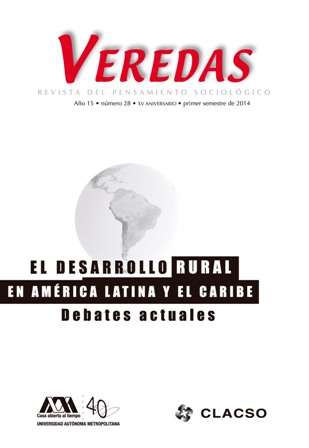Desarrollo campesino, un concepto en construcción
Complejidades y paradojas de la articulación campesino-capital
Keywords:
estrategias familiares, redes sociales y construcción de desarrolloAbstract
The present text recoups the history of the last 50 years of campesinos participating in the construction of a significant regional process. It has transformed the agricultural vocation of the land, the countryside, the structure and use of the territory, social relations, and the living conditions of farming families and their position in relation to the state economy. It consists of a regional process brought about from family strategies, social networks, and negotiations and confrontations between distinct actors in the north of Morelos in a region known as Los Altos. This process refers to the construction of development, understood as the constitution of a certain social order created by the disputes of the sum of the social actors that orient the regional structure and the processes of capital accumulation. In this case it concerns a process of regional agricultural development which revolves around the commercial production of seasonal tomatoes by small scale producers. It refers to producers whose working context is organized into family units, within which individual decisions are made and relations with different actors are managed. Nevertheless, the practices are not isolated: complex networks of social relations have evolved in which productive units and diverse actors participate.





